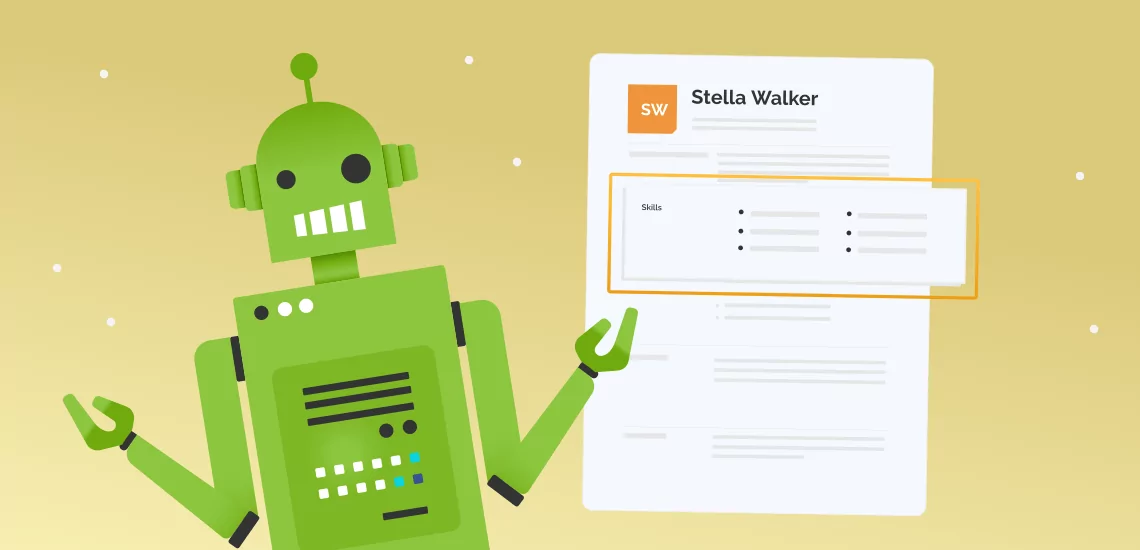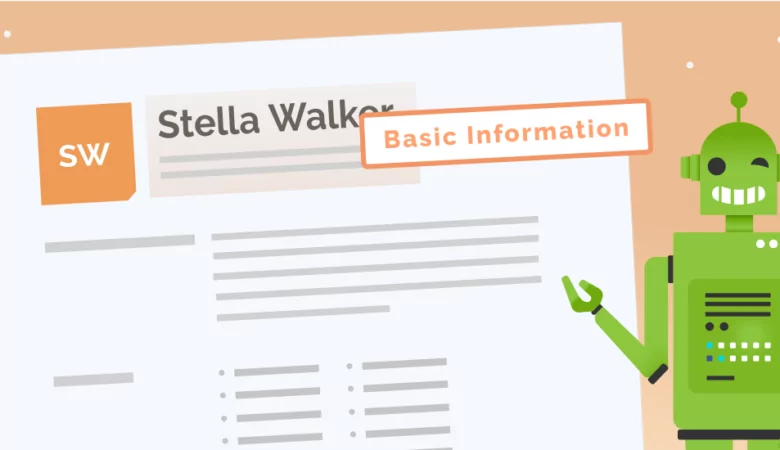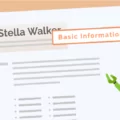Including your best skills on your resume can set you apart from other candidates. Here’s how you can make sure you list your best skills for your resume.

Listing Your Skills on Your Resume
What Skills To Put On A Resume
The skills section of your resume is one of the most important sections, but it’s also one of the most difficult to fill out. You most likely have a wide range of skills, but understanding what skills you need to excel in the job isn’t always clear. Your skills section needs to showcase how you meet all the requirements listed in the job description. But what are the best skills to add? How can you determine what skills are in high demand for your industry? Here’s what to consider when deciding what skills to add to your resume.

How to Decide What Skills to Add to Your Skills Section
You probably have tons of skills that you could put on your resume. However, first, you’ll want to narrow down what skills you want to list. Typically, you’ll want to list between 8 to 12skills, but some resumes (e.g., a functional resume) will allow even more. That said, it’s important that you’re listing your best skills, so prioritize skills that fit the following criteria:
- Relevant skills listed in the job description
- Transferable skills from other work experiences
- Skills you have certifications for
- Skills you’ve received awards or recognition for
- Skills you’ve used to benefit past employers
To narrow down your top skills, think about your past work experience. Identify two or three specific skills you used as part of each job. Your most relevant and transferable skills are great skills to add to your resume.
Best Skills to Include on Your Resume
Creating a comprehensive list of several types of skills can help you decide which are best to put on your resume. Here is a long list of key skills employers look for in potential candidates. If they apply to you and your skill set, then consider listing some of the following:
- Adaptability
- Communication skills
- Problem-solving skills
- Interpersonal skills
- Time management skills
- Active listening
- Project management
- Decision-making skills
- Teamwork
- Leadership skills
- Critical thinking skills
- General management skills
- Data analysis skills
You’ll notice that many of these skills can be called interpersonal skills since they directly relate to interacting with other people. However, others are skills that describe how you may approach work situations, like adaptability or teamwork skills. Additionally, it’s great to come up with technical skills or skills you’ve learned through training. Some of the most common technical skills include
- Web development
- Microsoft Office Suite (Word, PowerPoint, Excel)
- SEO (Search Engine Optimization)
- Writing skills
- Graphic design skills (Adobe Suite)
- Programming languages (HTML, CSS, JavaScript)
- Marketing (SEM, digital marketing)
All these skills could help with your job search, depending on what skills and work experience hiring managers are looking for.
Tips for Deciding Resume Skills
You don’t want to take up too much space on your resume by listing every skill you have. After all, you’re probably not equally proficient at each skill, and no employer is going to read them all. Narrow down your list to between 8 to 12 skills that best fit the job you’re hoping to get. If you’re using a functional resume format, then you can list more skills and break them down into several categories.
It doesn’t hurt to look at resume examples from others in the same field when narrowing down your list of skills. You should also examine the job listing and identity skills that match your own. A lot of recruiters incorporate keywords from the job description in an applicant tracking system (ATS) used to scan resumes. As such, employers will be searching for relevant skills based on the job ad.
FAQ: Listing Skills on a Resume
Soft skills and hard skills are equally important for most jobs. Adding a mixture of both hard skills and soft skills will depend on what type of job you’re applying for. For example, a retail manager job might require more soft skills, whereas a web developer may need more hard skills. If you’re not sure what type of skills to include, then check out the specific job description, and resume examples from other professionals in your industry. Looking at resume samples can give you a good idea of what potential employers are looking for in terms of skills.
You can easily choose your best skills as you look over your past work experiences. After all, you’ve likely developed a few strengths throughout your work history. Think about what skills set you apart from other employees, and be able to back them up with examples.
Most interviewers will ask about your top skills during an interview, so having an answer to their question can help you display your skills effectively. Make sure to add your top skills first on your resume so they’ll be the first to catch a recruiter’s eye.
Entry-level jobs require some of the same skills as higher-level positions. The only difference is that you may not have as many skills to list from past experiences. Make sure you go through the job posting and determine what skills you already have that you could apply to the position. You can use past volunteer experiences, certifications, and other experiences to decide on your top skills.








